Fare policy change: No transfers accepted on Kitsap Fast Ferries starting Oct. 1
Starting on Oct. 1, 2025, Kitsap Fast Ferries will align its fare transfer policy with that of Washington State Ferries and no longer accept transfers or PugetPass on its Fast Ferries. Kitsap Transit’s Board of Commissioners formally approved the change to its fare transfer policy on Tuesday.
The changes coincide with the full fare for trips departing Seattle increasing to $13.00. The $2.00 full fare for trips departing Bremerton, Kingston, or Southworth remains the same.
A year ago, when the Board approved a $2 fare increase in 2024 and a $1 increase in 2025 on westbound trips on Kitsap Fast Ferries, the fare policy change included a statement that prior to the 2025 fare increase, the agency would study the usage of transfers, the impact on the ferry fund, and the potential feasibility and impact of eliminating the transfer credits on Kitsap Fast Ferries. Last month, the Board received a presentation on the financial impact of transfers on the ferry fund.
The policy change is a de facto fare increase for some fast ferry riders and their employers, but will improve the financial health of Kitsap Transit's ferry fund. Without more revenue, the fund is unlikely to keep up with needs projected through 2050, including about $150 million for replacing aging vessels and $145 million for ferry terminal and facility improvements.
Currently, ORCA cardholders who ride more than one Puget Sound area transit service within a two-hour window receive a discounted fare on the next ride if they paid for the prior ride with E-purse (stored value similar to a debit card). Riders pay only the difference in the fares, so that their total cost for the trip is effectively the highest single fare during the trip. Those who pay cash to ride Kitsap Fast Ferries do not receive the transfer credit. The examples below illustrate the difference.
The fast-ferry's directional fare structure was designed to be modeled after the fare structure of Washington State Ferries (WSF). However, WSF does not provide transfer credit when riders pay fare with the ORCA card, while Kitsap Fast Ferries has given this credit to riders since the service launched in 2017. WSF also does not accept PugetPass, a monthly regional pass loaded on an ORCA card that, like E-purse, gives transit riders a transfer credit.
When the change takes effect on Oct. 1, 2025, riders who pay with ORCA E-purse will be charged the cash-equivalent fare to ride Kitsap Fast Ferries. Those who ride and pay with ORCA E-purse or PugetPass will continue to receive credit for transfers between public transit buses that accept ORCA or between Kitsap Transit buses and Sound Transit trains. Those who frequently ride primarily Kitsap Transit buses and fast ferries may consider buying a Fast Ferry monthly pass ($210 full fare or $105 reduced fare), which allows the passholder unlimited rides during the month on Kitsap Transit’s buses and ferries.
As required by federal law, Kitsap Transit conducted a Title VI equity analysis and determined the change in transfer policy would not result in a disproportionate adverse impact on minority or low-income riders. Reduced fare riders pay 50% of the full fare on Kitsap Fast Ferries.
The analysis, conducted by consultant Nelson/Nygaard, relied on demographic data collected in a Title VI survey fielded earlier this year on Kitsap Transit’s buses and ferries. Separately, Nelson/Nygaard found that transfers accounted for approximately 24% of all E-purse transactions in 2024 on Kitsap Fast Ferries. The analysis excluded youth, who ride free, and business accounts.
Kitsap Transit’s ferry fund revenue in 2024 would have been 19% higher without the transfer credit, which amounted to an estimated $810,000 over the year. About 22% of the transfer credit went to ORCA cards owned by employers or colleges. The other 78% of the credit went to individuals paying with ORCA E-purse and among these, 97% of the credit went to Adult ORCA cardholders. Less than 3% of transfer credit in E-purse transactions went to reduced-fare riders, including seniors and disabled riders.



